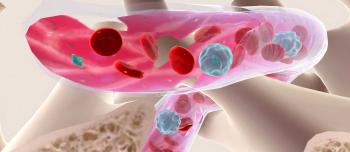Spark Therapeutics recently reported preliminary phase 1/2 data for SPK-8011, the company’s investigational gene therapy candidate for hemophilia A. The therapy is administered via a one-time intravenous infusion, which is designed to elicit the production of therapeutic levels of factor VIII (FVIII), a protein that is normally deficient in individuals with hemophilia A. Spark Therapeutics’ proprietary bioengineered adeno-associated viruses (AAVs) act as delivery vehicles, or vectors, to carry the genetic codes that prompt the FVIII production. The approach being tested in this trial uses a modified novel AAV vector genome (vg) to deliver the corrected FVIII gene into liver cells where the protein is normally generated.
According to a new press release, as of the July 13, 2018 data cutoff, 12 participants in the phase 1/2 trial have received a single administration of investigational SPK-8011. The dose sizes administered to trial participants have varied amongst the study participants with two patients receiving a low dose of 5 x 1011 vg per kilogram (kg) of body weight, three at a mid-range dose of 1x1012 vg per kg of body weight and seven at a high dose 2 x 1012 vg per kg of body weight. Across all participants, there has been a 97% reduction in annualized bleeding rate and a 97% reduction in annualized infusion rate. In addition, the first two trial participants, who have been followed for more than one year, have shown stable FVIII activity levels since reaching “plateau” for up to 66 weeks. Monitoring of trial participants is ongoing.
The company also addressed possible immune responses and incidences of elevated levels of alanine aminotransferase (ALT) enzymes in some of the patients – elevated ALT levels can lead to subsequent adverse effects on liver function if not properly addressed. Oral steroids were subsequently administered to positive effect.
“The clinical and safety profile of SPK-8011 has been highly encouraging, with no FVIII inhibitors observed. Transaminase elevations above the upper limit of normal have been seen in only three of 12 participants, with no evidence of persistent transaminase elevations. We believe, based on the tempo and magnitude of the immune responses observed, that a prophylactic course of steroids will suppress these responses and should lead to long-term expression of FVIII above 12 percent in all participants at a dose of 2x1012 vg/kg of SPK-8011. We plan to implement this prophylactic approach to steroid administration moving forward,” said Katherine A. High, MD, president and head of research and development at Spark Therapeutics.
Source: Spark press release dated August 7, 2018





